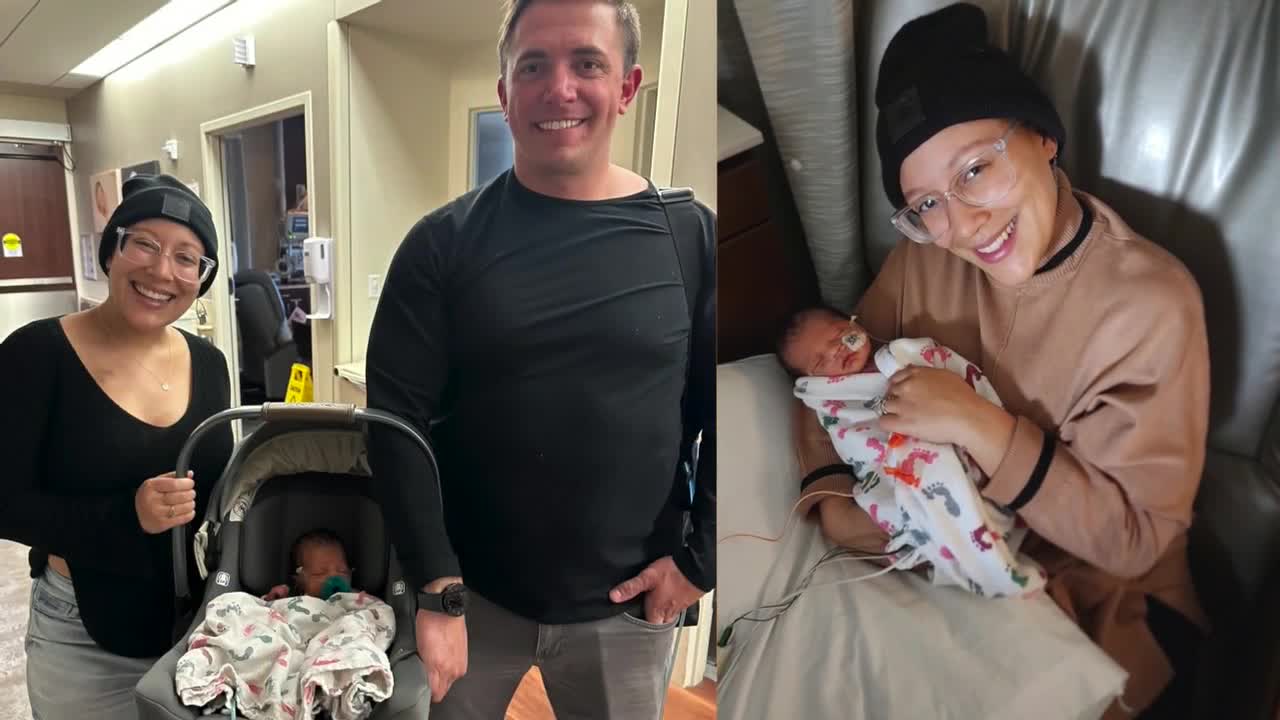CASTLE ROCK, Colo. — A pregnancy brings a lot of joy and expectation, but for one woman, it came at the same time as a heartbreaking diagnosis.
"I was thinking, 'Why me, why me?'" remembered Stacia Bailey, who was only 30 years old when she was diagnosed with breast cancer in 2022.
Not long after, her treatment became even more challenging.
"You have to do a test because you're having surgery. The nurse came in and she's like, 'So, you're pregnant,'" Bailey said, "Needless to say, surgery did not happen. That day I was going to get my lumpectomy. That did not happen."
It is rare for pregnant women to be diagnosed with breast cancer. The treatments for pregnant patients and patients who are not pregnant are very different.
"Some of the chemo medications aren't as safe, and also hormone blockers — those types of things (you) can't really do when you're pregnant," said Dr. Kristen Boylan, Ob/Gyn for AdventHealth Medical Group Ridgegate at Castle Rock.
Bailey and her husband had to decide what to do next.
"Are we going to have to make a really impossible choice? It's like, are we going to have to make a choice about (the) baby to protect me? Are we going to have to make a choice about me?" Bailey remembered.
She made the choice to battle cancer with her baby. Certain treatments were off the table and options like surgeries and chemotherapy were delayed. But in the end, she was able to hold her healthy baby girl to celebrate being cancer-free.
"She's a little titan, she did this too. So it was really important to me that she was there to ring the bell — not that she could ring it," Bailey said of her newborn at the time. "It was super special."

Since Bailey's case, Dr. Boylan has changed her practice management to more easily spot a key genetic indicator that a woman could be at high risk for breast cancer.
"[Bailey] was diagnosed with the BRCA gene. She's very young, so I think if we had known ahead of time that she had the BRCA gene, we would have been doing more frequent surveillance ahead of time," said Dr. Boylan. "That gene is a mutation that basically, if you're positive for it, there's BRCA 1 and BRCA 2, makes you more susceptible for women for breast and ovarian cancer."
Having accurate information about your family health history is helpful. A BRCA gene can be inherited from either parent.
"Now, I talk to women who maybe were adopted or don't know their family history for one reason or another, about genetic testing and offering that," said Dr. Boylan.
Bailey wants other expectant mothers who have received a breast cancer diagnosis to know that it is possible to save both lives.
"Even though it's tough and it's scary, lean on your people. Lean on the Lord, if you're of faith, but that's how you get through it," she said.
Early detection is extremely helpful.
"I've had a lot of patients find their own breast cancer with their self breast exams," said Dr. Boylan. "Feeling for something hard and fixed, like a frozen pea or a marble and something that's not going away with their cycle."
She said the earlier something is detected, the earlier treatment can start and outcomes can improve.






